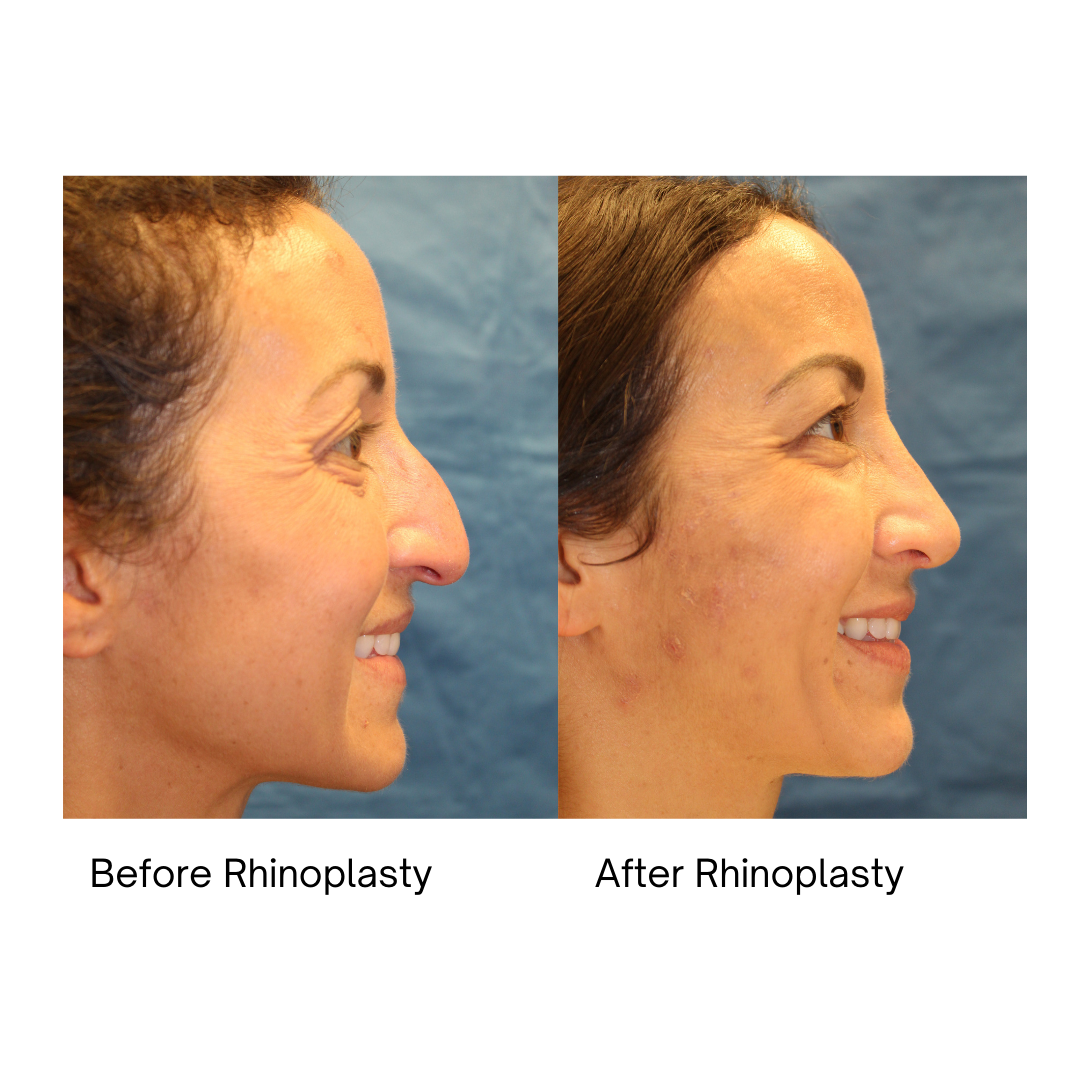Rhinoplasty
Rhinoplasty, commonly known as a “nose job,” is a popular option for those who are unhappy with the size or shape of their nose. This plastic surgery procedure is performed to change the size or shape of the nose and improve its appearance.

What is Cosmetic Rhinoplasty?
Rhinoplasty, commonly known as a “nose job,” is a popular option for those who are unhappy with the size or shape of their nose. This plastic surgery procedure is performed to change the size or shape of the nose and improve its appearance. There are two primary types of rhinoplasty: open and closed. In an open procedure, an incision is made across the columella (the strip of tissue that separates the nostrils), while in a closed procedure, incisions are hidden inside the nostrils. Rhinoplasty can also help to improve a patient’s breathing by correcting structural issues such as a deviated septum. Depending on the desired results, the procedure may involve removing, adding, or reshaping cartilage and bone.
How is Rhinoplasty Performed?
Rhinoplasty is a complex procedure that can take anywhere from 1.5 to 3 hours depending on the complexity of the surgery. Generally, the surgery involves making incisions inside the nose, but in some cases an incision may be made around the base of the nose. During the procedure, the surgeon will remove or reshape cartilage and bone to give the nose a more aesthetically pleasing look and improve nasal functions such as breathing. The surgeon may also use implants to enhance certain features. Once the desired shape is achieved, the skin and tissue will be repositioned and stitched back together. After this, your surgeon will place a splint and packing to help support your nose's new shape.
See a Nationally Renowned Facial Plastic Surgeon with Experience in Rhinoplasty in Louisville, KY
Kentuckiana ENT, a Division of ENT Care Centers, has a dedicated rhinoplasty surgeon with years of experience. See our cosmetic facial surgeon today:







